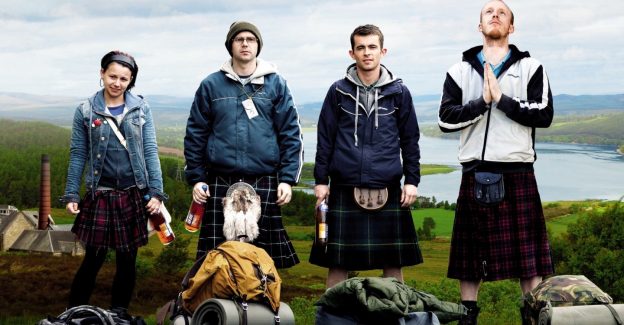The Angels Share is alcohol lost due to evaporation during the maturation of whisky. The exact amount lost to evaporation varies based on the properties of the wood, the skill of the cooper, the humidity of the region and how regularly the casks are turned. The term is also the name of
a Scottish comedy drama directed by Ken Loach centered around a fictional cask of Islay’s Malt Mill.
Why Does Whisky Evaporate
Unlike white spirits whisky is not legally recognised once it comes off the still, instead this “new make spirit” must be aged in oak barrels for a minimum three years before it earns the name. Most malt whiskies however, excluding No Age Statement (NAS) whiskies are far older with the core entry editions coming in at between ten and twelve years.
This time in the barrel allows for two things, maturation and evaporation. During maturation the water (generally around 30%) and the new make spirit (around 70%) leech and combine with the complex chemicals in the wood giving the whisky its colour, as well as a complex aromas and tastes ranging from early hints of vanilla to nutty and tea-like tannic notes. In addition to adding to the whiskies character, the oak barrel being crafted by the cooper out of staves without any form of glue allows the content to slowly evaporate.
How Much Whisky Is Lost
The angels share is averaged at around 2% per year in the UK, though this depends heavily on the climate, humid and moderate temperatures lead to higher alcohol evaporation rates. Consequently the alcohol loss is generally higher in the lowlands than Orkney, in considerably warmer climates such as India or Australia evaporation can reach as high as 12%.
Conversely a dry and warm climate will result in more water being lost meaning that the alcohol concentration actually rises, this is often the case in the USA due to their use of ventilated warehouses. Distilleries in Scotland do not typically control the airflow around the cask a key consideration in evaporation.
Regardless of how much or little the angels leave after the storage time, the whisky will have mellowed and softened due to the lower alcohol content. Nevertheless, unless its been further diluted it’s still considered Cask Strength .
Regulating The Angels Share
The 2% share taken by evaporation might not sound like much but it quickly adds up. To give you an indication lets do the maths:
Lost from the Barrel: The standard American barrel used in Scotland has a capacity of 195 litres, at 2% Angels Share 3.9 litres, or 5.5 bottles are lost every year.
Lost from Scotlands Smallest Distillery: Eradour the smallest of over 100 distilleries in Scotland has an annual production capacity of 90,000 litres. That 1,800 litres or 25.7 bottles lost.
Lost from Scotlands Largest distillery: Tomatin Distillery has a capacity of 5,050,000, if this were all aged 101,000 litres or 1,442 bottles a year would be lost.
The Clingfilm Myth
It’s quite clear that the Angels over Scotland are a thirsty bunch, and for obvious reasons many distilleries do take steps to try and ensure that alcohol loss due to evaporation is kept to a minimum. This also lead to a rather popular and controversial story a few years back that Diagio was using clingfilm to try and sober the angels up, for those not aware this was a huge misunderstanding, if you’re interested Oliver over at dramming.com has
set the record straight.
Despite the loss to profit the Angels share is an important part of the whisky making process, preventing the whisky from interacting with the air is likely to spoil the whisky.
Facts About The Angels Share
The angels share is not limited to whisky in fact it affects almost all brown spirits including brandy, the french call it ‘Part des anges’.
After 15 years the Angels share can amount to one half of a barrels content
Baudoinia compniacensis the black fungus found around distilleries is also known as the Angels Share fungus
America Angels seem to be part of the temperance movement as they mostly drink the water
